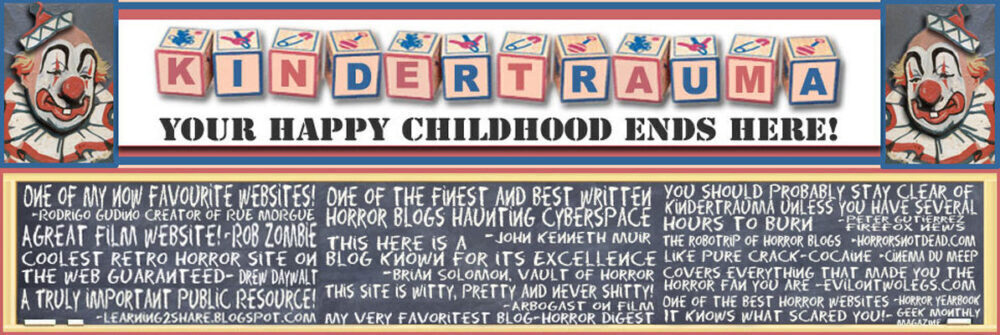
28 Days Later (2002) When I first saw this on the big screen, it was like having a dose of adrenaline. I kept thinking that I had too many windows in my house (that usually comes to mind with zombies of any kind). Another thing that struck me was how much I cared about the main group of four characters (Jim, Selena, Hannah, and Frank-I remembered their names without looking it up). I was anxious about their safety, and when one of them (if you know you know) was infected by a drop of blood in the eye, I wept because I was so invested in the survival of this, created by circumstances, family. It did give me nightmares about rage infected people chasing me down for several weeks after watching it.

The Orphanage (2007) I do not think this movie ever came to a theater close by, so I saw it on DVD back in the olden times when Netflix sent physical DVDs to your house. This one stayed in my head for a long time after viewing it mainly because of the crushing sadness when Laura (Belén Rueda) discovers what actually happened to her adopted son, Simón (Roger Príncep), who went missing early in the movie. I cried and cried over that particular reveal. But overall, this one has a great creepy atmosphere that sticks with you. I’m also a sucker for creepy sack masks like the one Tomás wears. If you like haunted house flicks, give this one a try, but be sure to have a box of tissues handy for the ending.

The Strangers (2008) This one I also watched at home and not in the theater. This one really got under my skin. Home invasion flicks really freak me out because it is something that could actually happen. In fact, I wrote a post about The Strangers about ten years ago (HERE). I still have not rewatched this one, and I'm not sure I'm brave enough to do it.

Sinister (2012) I went to a late showing of this creepy flick opening weekend, and then I went home to my empty house. This was not the best idea. I ended up turning on all the lights in the house. Professor and Princess, my two cats, thought I was nuts. I don’t know why I was so freaked out. I don’t have kids, and the big baddy in the flick was using kids; however, my logic doesn’t work very well in a dark, empty house. I vowed never to go to a late scary movie again. In fact, if I’m watching something scary, I usually chase it with something funny and light hearted. It makes for a more restful night’s sleep.

Skinamarink (2022) After all the buzz surrounding this one, I had to see it. So the weekend it hit Shudder, I watched it with my husband. This experimental horror movie had me on edge the entire time. I cannot quite pinpoint why. My husband got bored and wanted to go to bed, but I made him keep watching because I was too unnerved to watch the rest alone. Perhaps it brought back the time in my life when I was about Kevin’s age (Lucas Paul), and I was too scared to be alone in the house. My mom would go outside to hang up the laundry, and I would wedge myself between the screen door and the main door into the house to avoid being in the empty house. So, the thought of being trapped in the house with my parents missing took me back to being a frightened four-year-old. After watching the movie, I spent weeks pouring over reaction and analysis videos on YouTube about Skinamarink. I don’t know if I can ever watch it again. Oh yeah, f#%k that Fisher Price phone!






































You must be logged in to post a comment.